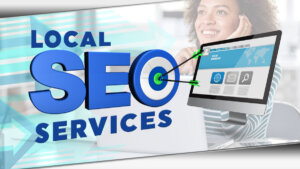Are You Unwittingly Jeopardizing Your Licensure with Patient Privacy Issues Online?
The objective of this article is to explore the issues involved in using online marketing of the licensed social media code of ethics for mental health – especially Facebook – and remain compliant with the practitioners’ professional codes of ethics.
‘Content Strategy’ versus ‘Engagement Strategy’?
Question: Should licensed practitioners use a (presumably safer) ‘Content Strategy’ – versus implementing an ‘Engagement Strategy’, which is possibly more powerful? Note: an Engagement Strategy is generally accepted in the online marketing industry as a highly effective step in helping to build relationships, and build that relationship to eventually turn online visitors into customers/clients.
Engagement on Social Media platforms certainly strengthens relationships and increases conversion into paying customers/clients. For general businesses of any size, Engagement is considered a vitally important social media marketing strategy. However, for professional psychologists and all licensed mental health practitioners, the
Engagement Strategy for Mental Health Practitioners
Engagement Strategy is questionable because all online activity must be compliant with the licensed professional’s code of ethics, especially patient confidentiality. Could it be a high-risk move?
Engagement could/would successfully convert visitors into clients, but in the psychotherapy/mental health practitioner niche, the risk of harming client relationships is widely thought to outweigh the potential benefits. Additionally, clients’ posts/comments online are usually permanent, so if posts/comments are viewed as potentially harmful, this is a risk that could jeopardize the mental health professional’s reputation, and perhaps even their licensure.
Content Strategy & the Practitioners’ Codes of Ethics
Providing valuable, engaging, sharable consumer education is a critical component of a mental health practitioner’s marketing strategy – online and offline. This is the basis of a solid Content Strategy.
As a consultant, I recommend that Social Media activities be clearly designed to keep the mental health practitioner in compliance with their professional Code of Ethics, AND to avoid some of the risks to relationships described in professional articles now available online as guides.
In Support of the Content Strategy for Licensed Practitioners
So here is a summary of some of the key resources for supporting a Content Strategy versus an Engagement Strategy, as well as additional guidelines for the successful implementation of Social Media marketing for mental health practitioners:
- I recommend using the guiding principles of Dr Keely Kolmes, (www.drkkolmes.com) a private practitioner who is widely recognized as a Subject Matter Expert (SME) and influencer in ‘psychotherapy and social media’.
- Among other direct experience, Dr. Kolmes has held the job of ‘Digital Director’ for the American Psychological Association (APA) www.APA.org, as you can see in her CV.
- Here is a quote about Dr. Kolmes that I take at face value as to her credibility on social media marketing issues:
“I have had the pleasure of interviewing and creating an online course with Dr. Keely Kolmes on the topic of social media and digital ethics. Keely is internationally known for her social media policy, which is used in many countries, including Australia. … There’s no doubt she is a leader in the field of mental health and on the cutting edge of developments in the realm of digital and social media ethics.”
-Clinton Power, Sydney Australia, Relationship Counsellor
4. Her article, “Managing Facebook as a Mental Health Professional” (information about privacy, shared friend networks, and some distinctions between profiles and pages) is a bit old – 2009 – and Dr. Kolmes updated it for Facebook’s Privacy update in 2010.
5. Dr. Kolmes’ “More privacy issues on Facebook” – April 2010 – provides “a walk-through of adding a bit more security to your profile, although it is becoming harder to really completely secure any information on Facebook.” These articles remain on her website, and she continues to promote their ethical guidelines (as well as practical recommendations) in speeches, interviews, and PR – globally.
Dr. Keely Kolmes’ Quotes
I’ve selected a few key ‘take-aways’ that apply to FACEBOOK – quotes from Dr. Kolmes’ articles:
-
- Visibility, Exposure, and Self-Disclosure: “Inviting clients to your personal (social media/networking) profile can also be perceived as inviting them into your personal life (a code violation) … This can send mixed messages to clients, especially if they are unclear about therapeutic boundaries, to begin with.
- “Imagine how you may feel discovering that you and your clients have mutual friends. While it may not impair your objectivity as a clinician, it may subtly influence how you regard your patient in a multitude of ways, and it may also have an impact on how your patient views you and your relationship.
- “The APA Ethics Code (APA, 2002), Standard 3.05, Multiple Relationships, states that psychologists should avoid multiple relationships that could impair their effectiveness or cause harm. Let’s say you decide you would like to be friends with some of your clients on Facebook. Do you want to get updates on your clients’ lives out of session, knowing before their scheduled session with you what kind of day they’ve had that their relationship status has changed, or that they were out heavily drinking at a party last night? What if a client expresses self-harm desires on her Facebook Wall? If you fail to act on cries for help on a Facebook page and your client harms herself or someone else, could you be professionally liable for failing to prevent harm? These are questions that therapists will have to consider when they establish online connections with patients.
- “Deleting a client as a friend can be experienced as especially rejecting and complex—more so than declining the initial friend request in the first place. These are certainly thorny ethical and clinical dilemmas which require consultation and care.”
Dr. Kolmes’ Facebook Recommendations:
“In Patricia R. Recupero’s article, “Legal Concerns for Psychiatrists Who Maintain Websites,” she outlines how courts recognize three types of websites. (“Intermediate” sites may offer advice and may invite contact from site visitors.) … Be mindful that if you are creating a Facebook page or profile to promote your practice and you enable activity and interaction from clients on your Wall, you are turning your Facebook presence into an intermediate site. This can create potential legal dilemmas for mental health practitioners, as the interaction will need to be consistent with professional standards of care. It also means that you could be having public interactions on the site with people who later become clients which raises additional issues related to confidentiality and HIPAA-related communication protocols.
-
- “… clients have no duty to be private or confidential about their relationship with us, and some of them may feel comfortable with a public link to our pages, or even saying in public that they are our clients. That is their prerogative. But it does not relieve us of our own duty to provide confidentiality to them
- “To read more and stay current with news about Facebook changes, an excellent resource is the Electronic Frontier Foundation’s blog. EFF is a non-profit organization that is devoted to protecting your digital rights. You can find links to many of their updates in the reference section.”
Keely Kolmes’ guiding articles can be found on her website. The entire list with links can be found on this page on her website “Articles for Clinicians Using Social Media” at this link: http://drkkolmes.com/clinician-articles/.
I have searched around for other Psychotherapists’/mental health practitioners’ Social Media guidelines. Institutions such as hospitals and healthcare systems are different, and although they are very professional, with great content and excellent marketing techniques, their guidelines for Engagement on Social Media are different.
Try Pinterest
For another positive social media strategy, consider Pinterest. It’s easy and fun, and FULL of prospects in the practitioner’s target market. Members are very active on Pinterest, and a high % of them click through to websites. Take a look at this amazing Board – 75k+ pins on positivity and inspiration!!!! Great for tweeting and reposting – carefully selected to create good feelings and shareability.
Summary Thoughts
So, in summary, licensed mental health practitioners’ social media strategies are safely content-driven, with the objective of building a strong hub-and-spoke system (website = hub) to increase SEO and get found by prospective clients. When the posted content is more valuable, engaging, and sharable than their competitors, then it will be widely shared and thus it will increase awareness and client conversions.
BONUS TIPS:
1. Promote your psychotherapy private practice online:
If you want more guidance on integrating the digital world into your practice marketing, see this book:
The Psychotherapist’s Guide To Online Marketing for Private Practice
A simple do-it-yourself model
By Azzia Walker, B.A. & Ofer Zur, Ph.D. (of The Zur Institute)
2. Free Online Resources, Brochures, Videos, Articles, Guidelines & PodCasts by Ofer Zur, Ph.D.:
For Psychotherapists, Counselors, Mental Health Professionals, and Related Fields
If you finished reading this post and you think it’s valuable, others will too, so take 5 seconds (!) to share on Facebook, Twitter, or your favorite social scoop. Thanks!
For more resources, see the Free Management Library topic: Marketing and Social Media.
.. _____ ..
ABOUT Lisa M. Chapman:
Lisa Chapman helps company leaders define, plan, and achieve their goals – both online and offline. After 25+ years as an entrepreneur, she is now a business and marketing consultant, business planning consultant, and social media consultant. Online, she works with clients to establish and enhance their brand, attract their Target Audience, engage them in meaningful social media conversations, and convert them into Buyers. You can reach her via email: Lisa (at) Lisa Chapman (dot) com. Her book, The WebPowered Entrepreneur – A Step-by-Step Guide is available at:
- com: http://bit.ly/AmazonTheWebPoweredEntrepreneur
- Barnes & Noble: http://bit.ly/BNTheWebPoweredEntrepreneur
 Sections of this topic
Sections of this topic
















